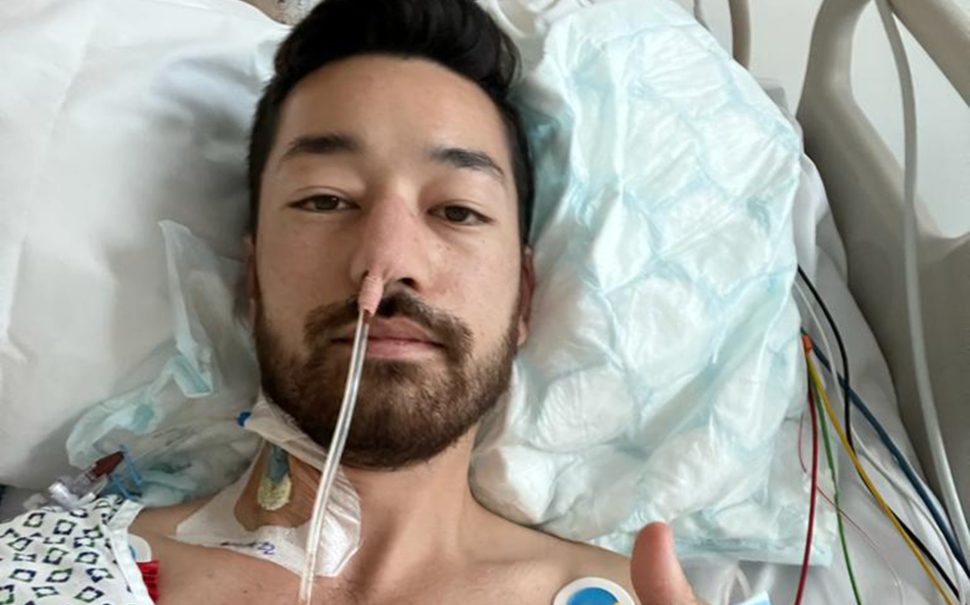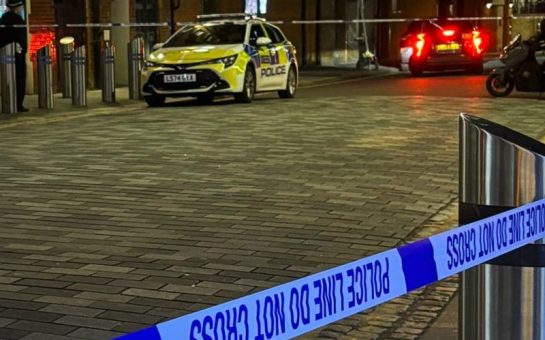A London fitness enthusiast has completed the 2023 London Marathon raising funds for Diabetes UK after he was affected by a rare pancreatic neuroendocrine tumour that caused severe low blood sugar.
32-year-old Freddie Barber, from London, first began noticing symptoms he suspected were linked to hypoglycaemia or low blood sugar in early 2022. He recalls an incident at a football game when he started experiencing double vision and confusion, and at halftime he completely forgot why he was waiting in a queue.
“My suspicion was that these symptoms might be associated with social settings where I had a few drinks, not eaten enough, or could be linked to excessive exercising,” explained Freddie.
“This led me to think it was being caused by low blood sugar, so I took to carrying packs of sweets around with me as a precaution.”
Over time, Freddie became increasingly aware the episodes were becoming more frequent. It was at a friend’s wedding in Italy during the summer of 2022 things took a turn for the worse, culminating in Freddie falling into a hypoglycaemic coma.
“The day before the wedding we spent all day on the beach, and I’d exercised in the morning and went to bed at midnight,” he recalled.
“I was meant to wake up for the ushers’ lunch the following day, but when my friends came into my hotel room at 4 pm they couldn’t wake me.
“Luckily, they understood the situation, acted quickly, gave me a fizzy drink, and it was this that eventually brought me round.”
Once back in the UK, Freddie was referred to Professor Barbara McGowan, a consultant in Diabetes and Endocrinology at Cleveland Clinic London, who specialises in treating hormones and metabolic problems.
“Freddie’s blood sugars were extremely low, and what was more worrying was that he felt okay. He had clearly been managing this for a very long time and his body had already developed ‘hypoglycemia unawareness’ and adapted to not reacting to such low blood sugar levels,” said Professor McGowan.
Freddie’s levels were 2.5 mmol/L. Most people who drop below 3.0 mmol/L would feel very ill. After processing his results, Professor McGowan immediately scheduled him for a supervised 72-hour fast.
Freddie was referred through Cleveland Clinic London’s Acute Admissions Unit (AAU) which offers rapid assessment and 24/7 care as well as access to advanced diagnostics and testing for patients in need of acute or urgent medical attention.
In healthy individuals, if blood sugar levels are low, insulin levels in the blood should be low or suppressed.
In Freddie’s case, Professor McGowan suspected an insulinoma and was expecting to find inappropriately elevated insulin levels to explain the hypoglycaemia, but this wasn’t the case, indicating another reason for Freddie’s low blood sugar.
The fast also showed that in just a few hours his blood sugar levels dropped from low to critically low levels.
Further testing revealed Freddie had a pancreatic neuroendocrine tumour in his pancreas, which was secreting an insulin-like hormone leading to low blood sugar levels. Freddie underwent a six-hour procedure to remove the lesion.
The surgery was successful and performed without complications. Over the next few days, Freddie spent time in the ICU and continued recovering on the ward. Fortunately, his blood sugar levels returned to a healthy range once the tumour was removed.
Professor McGowan added: “The tumour Freddie had was rare and can often be missed for many years, especially in young people. Freddie was extremely lucky. Although his body was compensating, by acting quickly, his friends most certainly helped save his life.”
Two months later, Freddie was back to work. Seven months on, he says he’s back to full health.
With his health back on track, Freddie participated in the 2023 London Marathon on behalf of Diabetes UK. He crossed the finish line in an inspirational three hours and 14 minutes.
“While I didn’t have or develop diabetes, I wanted to support the organisation because I experienced some of the debilitating effects of irregular blood sugar levels, which impacts many people with the condition.
“When I hear friends or family having health concerns, I tell them it’s important to get things sorted right away. It’s definitely something I’ve carried with me from my health journey. I was lucky to be referred to a brilliant endocrinologist, and I’m so grateful I was able to get care as quickly as I did.”
Featured image credit: Freddie Barber





